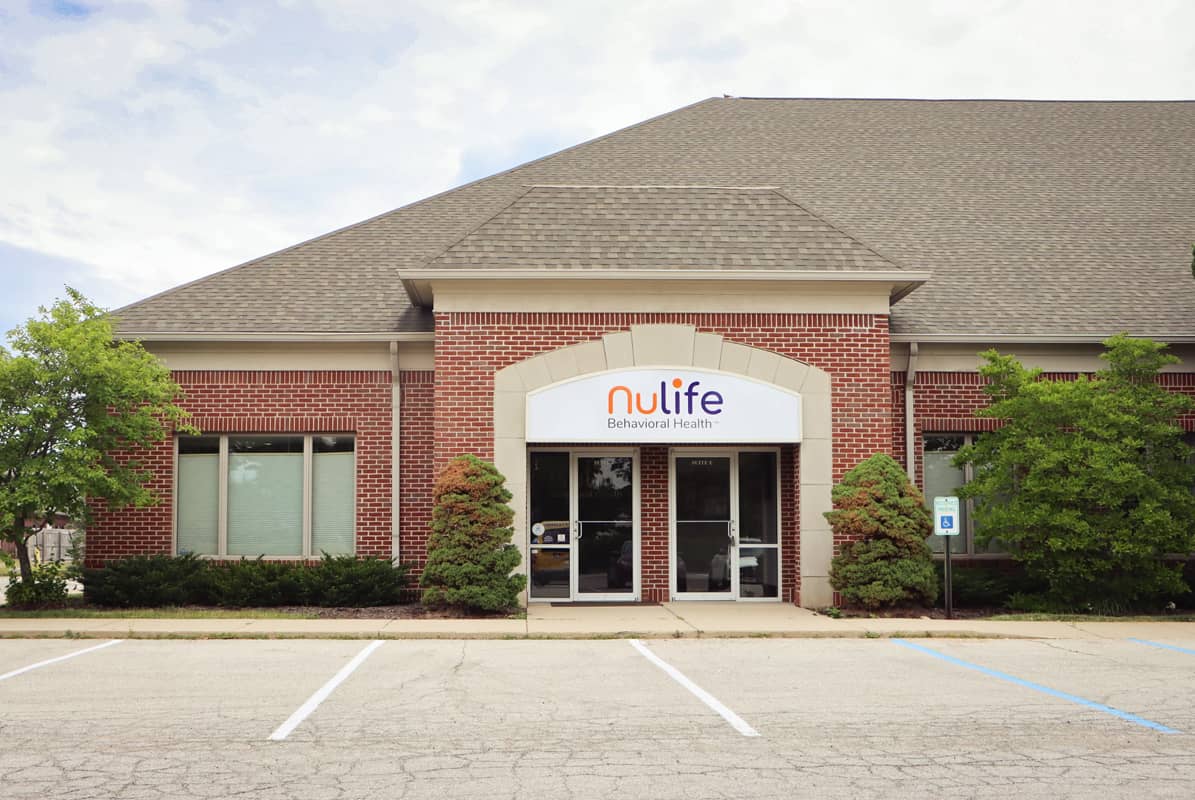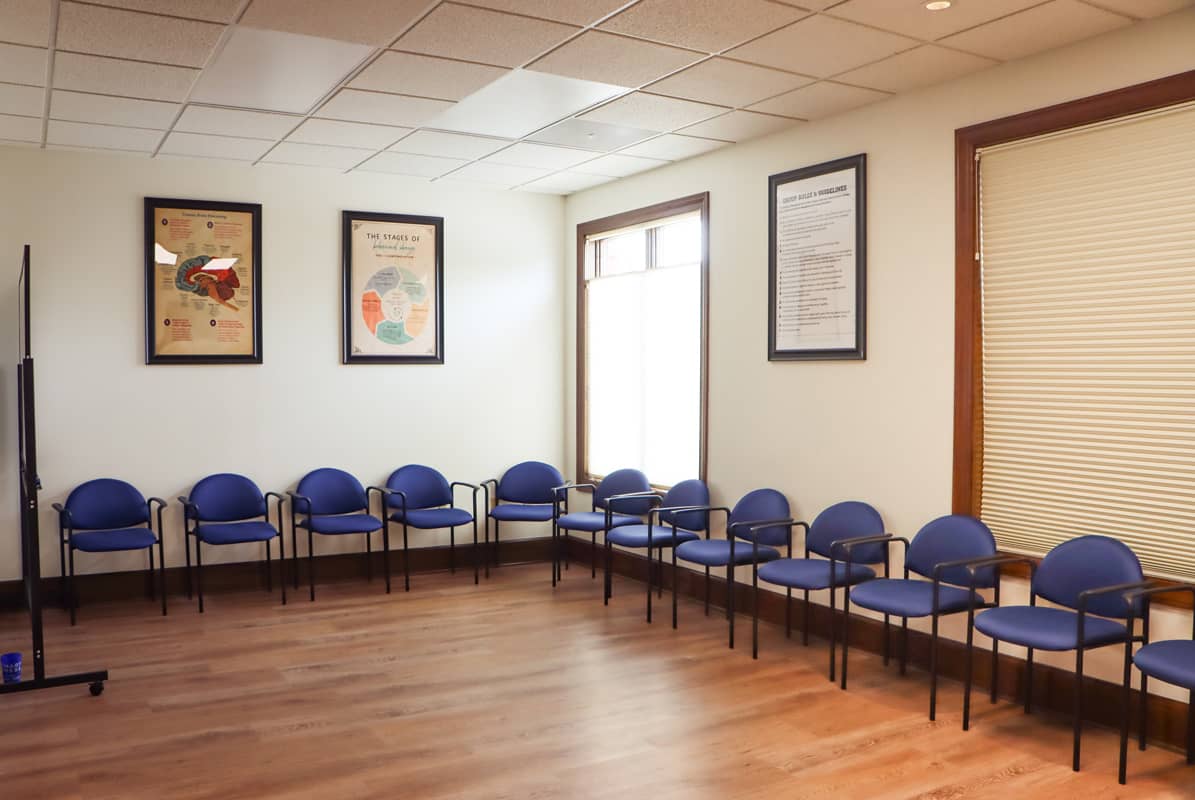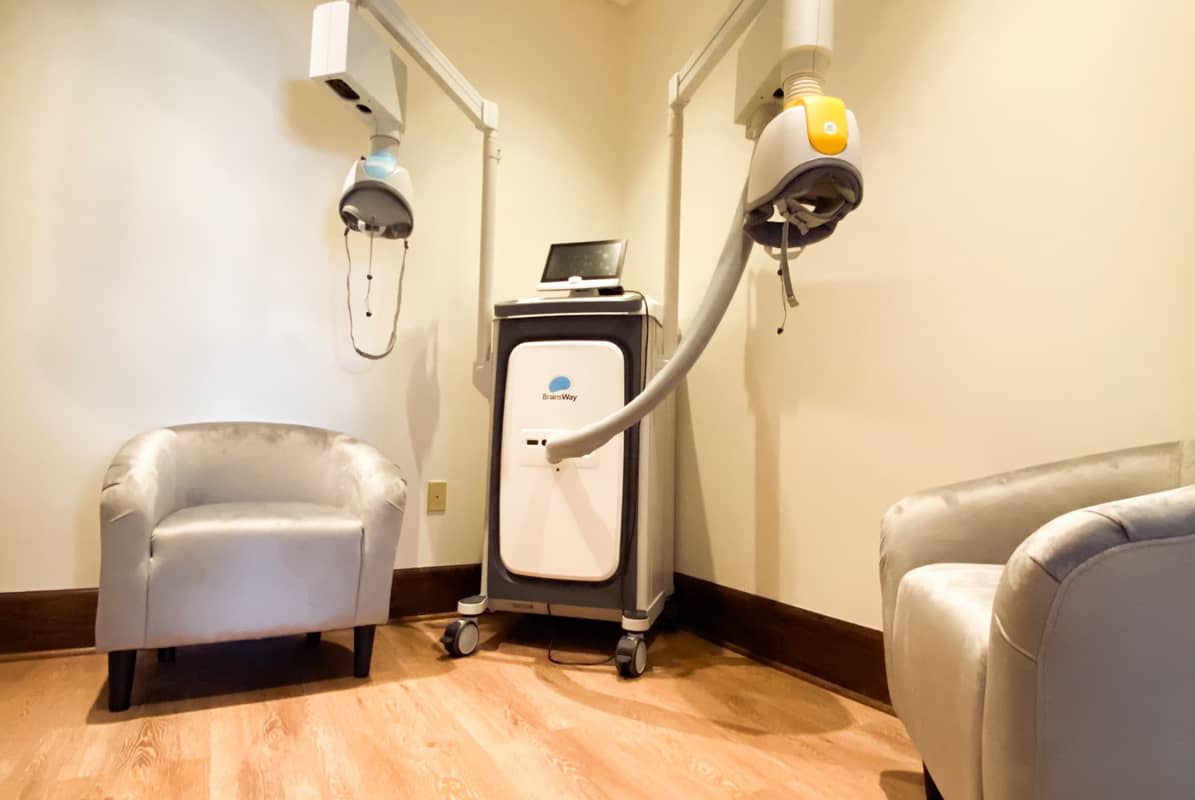
Understanding the complexities of mental health is essential, especially when considering outpatient mental health in Indiana. This blog post sheds light on this critical topic and provides valuable insights into various aspects of mental illness.
We’ll examine the U.S. rate of mental health issues, illustrating how they influence daily life. Additionally, we’ll explore the benefits offered by outpatient treatment programs in Indiana, such as flexibility and balance between therapy and daily activities.
We will also discuss the role of personalized treatment plans tailored to patient needs and the therapeutic approaches used by skilled professionals. Lastly, we’ll emphasize the importance of seeking professional help early during a mental health crisis or if you’re experiencing signs indicating severe mental illness.
This comprehensive guide is for anyone seeking understanding or assistance with behavioral health issues within Indiana’s outpatient setting.
UNDERSTANDING MENTAL HEALTH DISORDERS
Mental health disorders affect millions of Americans. From anxiety to bipolar disorder, it’s crucial to understand these conditions to recognize their impact on overall well-being.
The Prevalence of Mental Health Disorders in America
According to the National Institute of Mental Health, more than one in five U.S. adults have a mental illness. Effective outpatient care and treatment options like those offered at NuLife Behavioral Health Indiana are essential.
Common Mental Health Disorders
Common mental health disorders include the following:
- Anxiety Disorders: Excessive fear or anxiety that interferes with daily activities.
- Depressive Disorders: Persistent sadness, hopelessness, and lack of interest or pleasure in activities.
- Bipolar Disorder: Extreme mood swings ranging from manic highs to depressive lows.
Learn more about these disorders we treat through resources such as Mayo Clinic’s Diseases & Conditions guide.
How Mental Health Disorders Impact Daily Life
Mental illnesses impact everyday life, making it challenging to thrive personally, professionally, or academically. A person may need help maintaining relationships, performing at work or school, or managing finances. At treatment centers like NuLife Behavioral Health in the Indianapolis metro area, we offer outpatient services and integrated care tailored to your needs.
BENEFITS OF OUTPATIENT TREATMENT PROGRAMS
Mental illness can be overwhelming. Seeking quality care is the first step toward recovery. One of the most effective ways to manage these conditions is through outpatient treatment programs and individual therapy. Outpatient care at our treatment facility provides versatility and assistance so you can handle your commitments while getting health treatment.
Flexibility Is Key
In contrast to the extended stays of inpatient treatments, adult outpatient treatments allow you to receive care while maintaining daily life. This means you can attend therapy sessions around your work or school schedule, making it easier to commit to your recovery without disrupting other essential aspects of life.
Balance Is Everything
Outpatient care integrates into daily routines. You can balance therapy with regular responsibilities like work or school commitments within familiar surroundings.
Support Is Crucial
Another benefit of outpatient services is its robust support system. We do not isolate you at our treatment facility but instead encourage you to interact with others experiencing similar challenges – creating a sense of community and shared understanding. Our integrated care programs include group therapies, peer discussions, and family counseling sessions to foster mutual empathy and encouragement among participants.
Choosing an intensive outpatient program at centers like NuLife Behavioral Health Indiana means opting for a balanced path toward better mental health and recovery while maintaining your everyday routine. Remember, every person’s needs are unique based on the severity and type of illness, personal circumstances, and other factors, such as dual diagnosis. Therefore, always consult professionals before choosing how to manage mental illness.

KEY TAKEAWAY:
Outpatient treatment programs for mental illness in Indiana offer flexibility, balance, and support to individuals seeking care. Our approach to integrated care allows patients to attend therapy sessions and interact with others experiencing similar challenges while maintaining their work or school schedule. It is vital to consult professionals before choosing a disorder treatment, as each person’s needs are unique.
ROLE OF INDIVIDUALIZED TREATMENT PLANS
Everyone has unique mental health disorders, so a personalized strategy is vital for addressing specific needs. At NuLife Behavioral Health Indiana, our health providers believe in the power of individualized treatment plans.
Therapeutic Approaches Used in Individualized Plans
An individualized plan can use various therapy methods. These approaches may include cognitive behavioral therapy (CBT), dialectical behavior therapy (DBT), or Transcranial Magnetic Stimulation (TMS). The choice depends on the nature of your disorder, its severity, and how you respond to different therapies.
- Cognitive Behavioral Therapy: CBT effectively treats conditions like depression, anxiety, and eating disorders by helping patients identify negative thought patterns and develop healthier coping mechanisms.
- Dialectical Behavior Therapy: DBT combines elements of CBT with mindfulness practices derived from Buddhist meditative techniques. It’s beneficial for managing borderline personality disorder and other severe mental health issues characterized by emotional instability.
- Transcranial Magnetic Stimulation (TMS). TMS is a non-invasive treatment approved by the FDA for use with depression, bipolar disorder, obsessive-compulsive disorder, and other mental health conditions. TMS uses powerful magnetic fields to stimulate groups of nerves within the brain that are inactive. TMS sessions take place on an outpatient basis and require no down time. A person can have a TMS session and return to their daily routine immediately.
The Importance of Tailoring Treatments According to Patient Needs
No two people experience mental illness identically, which makes tailoring treatments essential. A person dealing with a mental health issue may require different interventions at our treatment facility than someone experiencing another disorder, even if they share comparable signs, such as panic attacks or mood shifts.
By personalizing our approach at NuLife Behavioral Health Indiana, we ensure you receive therapy tailored to your condition, promoting successful recovery while minimizing risks associated with one-size-fits-all methods.
At NuLife Behavioral Health Indiana, we will support you in improving your mental health. Call us today at 317-868-5244 to begin the healing process together.

KEY TAKEAWAY:
NuLife Behavioral Health Indiana believes in the power of individualized disorder treatment plans to provide quality care. Different therapeutic approaches, such as CBT, DBT, and TMS, can create personalized programs based on a patient’s needs. Tailoring treatments according to patient needs, such as co-occurring disorders, is essential for successful recovery.
IMPORTANCE OF SEEKING PROFESSIONAL HELP EARLY
Mental illness can be overwhelming, but timely professional assistance is essential to maintain a healthy lifestyle and mitigate symptoms. At NuLife Behavioral Health Indiana, we provide the support and disorder treatment necessary for recovery.
Signs You May Need Professional Help
Mental health disorders can be challenging to identify without professional guidance. Some common signs include the following:
- Persistent feelings of sadness or hopelessness
- Excessive worry or fear
- Extreme mood changes
- Social withdrawal
If you or a loved one experiences these symptoms, don’t hesitate to ask for assistance or information about the disorders we treat. Call NuLife Behavioral Health Indiana at 317-868-5244.
The Benefits of Early Intervention
Early intervention can make a difference in the following ways:
- Better Prognosis: The sooner therapy begins after the onset of symptoms, the better the chance of reducing severity and duration.
- Faster Recovery: Early intervention means quicker treatment access, leading to more rapid recovery than waiting longer before seeking help.
- Avoiding Further Complications: Untreated mental illnesses can result in other serious complications, including physical health problems, such as heart disease, and social challenges, like job loss due to isolation caused by the condition.
Contacting a professional health provider when dealing with mental health can help you get back on track and stay on track. It’s never too late or too early to start your voyage toward healing and well-being. However, the earlier you act, the more successful you can be. Contact NuLife Behavioral Health Indiana today at 317-868-5244 for immediate assistance about the disorders we treat and your or your loved one’s mental health needs.

KEY TAKEAWAY:
Seek professional care for persistent sadness or hopelessness, excessive worry or fear, extreme mood changes, and social withdrawal. The benefits of early intervention include better prognosis, faster recovery times compared to those who wait longer, and avoiding further complications. Remember, it’s never too late (or too soon) to start your journey toward healing and well-being. Contact NuLife Behavioral Health Indiana at 317-868-5244 to ask about our adult intensive outpatient program.
FAQ About Outpatient Mental Health Indiana
How Long Can a Mental Hospital in Indiana Keep You?
An initial involuntary commitment to a mental hospital in Indiana lasts up to 72 hours if the facility accepts a written application regarding the person’s need for urgent care. The application must include a written statement by a physician confirming that the person who is involuntarily committed is:
- mentally ill,
- either dangerous or gravely disabled, and
- in need of immediate restraint.
How Do I Get Someone in Indiana Mental Help If They Refuse?
If someone refuses to get help from a treatment facility but poses a danger due to their condition, you can petition for involuntary commitment. Also, seek guidance on urgent care from the National Alliance on Mental Illness (NAMI) Indiana.
What Is a Good Mental Health Quote?
“Mental health…is not a destination, but a process. It’s about how you drive, not where you’re going.” — Noam Shpancer, PhD
How Many Mental Health Centers Are in Indiana?
Indiana has 24 community mental health centers. Also, hundreds of mental health treatment facilities across the state offer inpatient treatment and outpatient care for addiction, mental illness, and dual diagnosis.
CONCLUSION
One in five adults experiences mental illness each year, affecting all facets of life, from personal to professional relationships. Adult outpatient facilities like NuLife Behavioral Health Indiana provide effective, targeted interventions for successful recovery. Unlike adult inpatient facilities, you can schedule treatment around your work or school routine or personal responsibilities. Your or your loved one’s tailored health treatment may include individual therapy, such as cognitive behavioral therapy, dialectical behavior therapy, or eye movement desensitization and reprocessing.
During group sessions, you can exchange experiences and get encouragement from others who face health concerns like yours. Seek professional help through an intensive outpatient program to manage your symptoms and improve your quality of life as you recover. Contact the NuLife Behavioral Health Indiana treatment center today.

Reach Out Now to NuLife Behavioral Health Indiana
Our mental health treatment programs can offer you or a loved one a chance to thrive. Contact our helpful staff with any questions.








